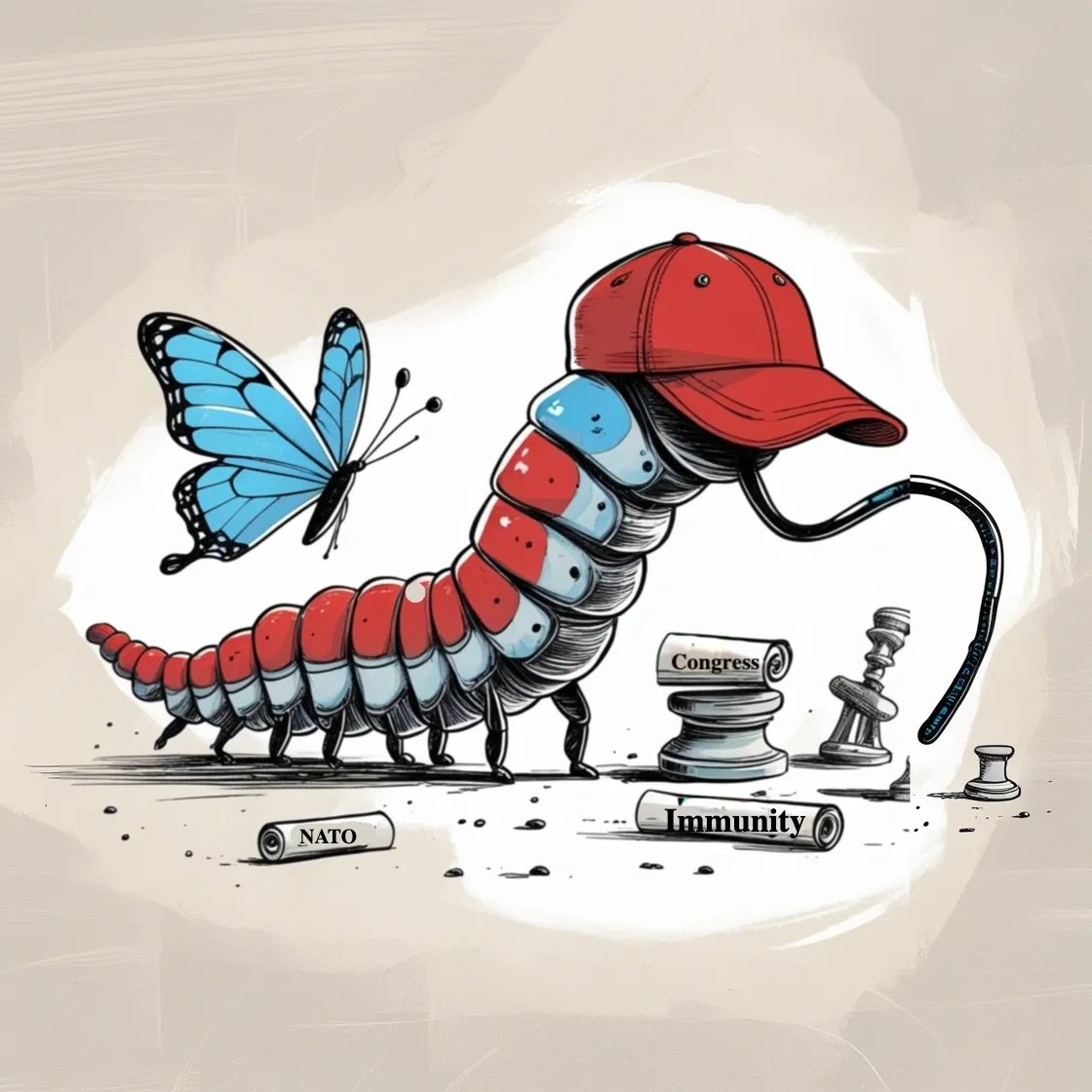The Rooster In Flight - A Substack Article
Executive Mutation
America’s Constitutional Mutation and the Rise of CEO-Kings
By: Wynand Johannes de Kock
February 23, 2025
On July 2, 2024, a day after the Supreme Court handed down its landmark decision in Trump v. United States, I wrote a letter to The Atlantic. The deci
sion had shaken me deeply, as it seemed to mark a fundamental shift in the balance of power within the American government. I felt compelled to write—not just as an observer from Australia but as a Christian who believes in the intrinsic dignity of all humans as image bearers of God.
The letter was never published. Perhaps it was too long, too impassioned, or simply lost in the flood of submissions that surely followed such a seismic ruling. But today, as I revisit those words in light of recent events, I realise how urgent they remain—not only for those who value democracy but for Christians who understand the theological stakes of unchecked power.
The Letter
To the Editors of The Atlantic,
Greetings from Australia, a nation that has long balanced constitutional monarchy with democratic principles. From this vantage point, I have watched recent developments in the United States with fascination and concern. Your political chrysalis, so carefully crafted by the Founding Fathers, appears to be undergoing an unexpected mutation. Instead of emerging as the majestic democratic butterfly intended, it seems to be transforming into something else entirely—a strange, monarchical moth with an ever-expanding proboscis for unchecked executive power.
The Supreme Court's decision in Trump v. United States granting 'presumptive immunity' to sitting presidents feels like genetic engineering gone awry. This ruling has created a creature with an impenetrable exoskeleton against prosecution, shielding the executive branch from accountability while leaving citizens vulnerable to its unchecked reach. The constitutional caterpillar you’ve nurtured for centuries is pupating into something peculiar: its democratic wings are shrinking while its executive proboscis…
Interested in completing the article? Follow Wynand on Substack